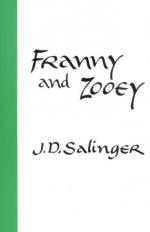|
This section contains 139 words (approx. 1 page at 400 words per page) |

|
Salinger is clearly influence by "lost generation" novelists such as F. Scott Fitzgerald. As Fitzgerald's characters were accomplished in repartee, so are Salinger's. Where The Great Gatsby's narrator Nick claims a predilection for telling the truth (1925; see separate entry), so does Salinger's narrator, Buddy. In his omniscience as an unseen narrator who knows all, Buddy's view parallels that of Dr.
Eckleberg's huge optometric-advertisement for glasses that are symbolic of God and which oversee all the events occurring in The Great Gatsby, . Salinger's fondness for his self-involved characters, and his lack of apology for their larger-thanlife egos, also parallels that of Fitzgerald toward his flamboyant, high-society players. Naturally, as a member of the postLost Generation, Salinger does not share all of Fitzgerald's concerns, but concerns for the individual person's self-realization exist in works by both authors.
|
This section contains 139 words (approx. 1 page at 400 words per page) |

|




